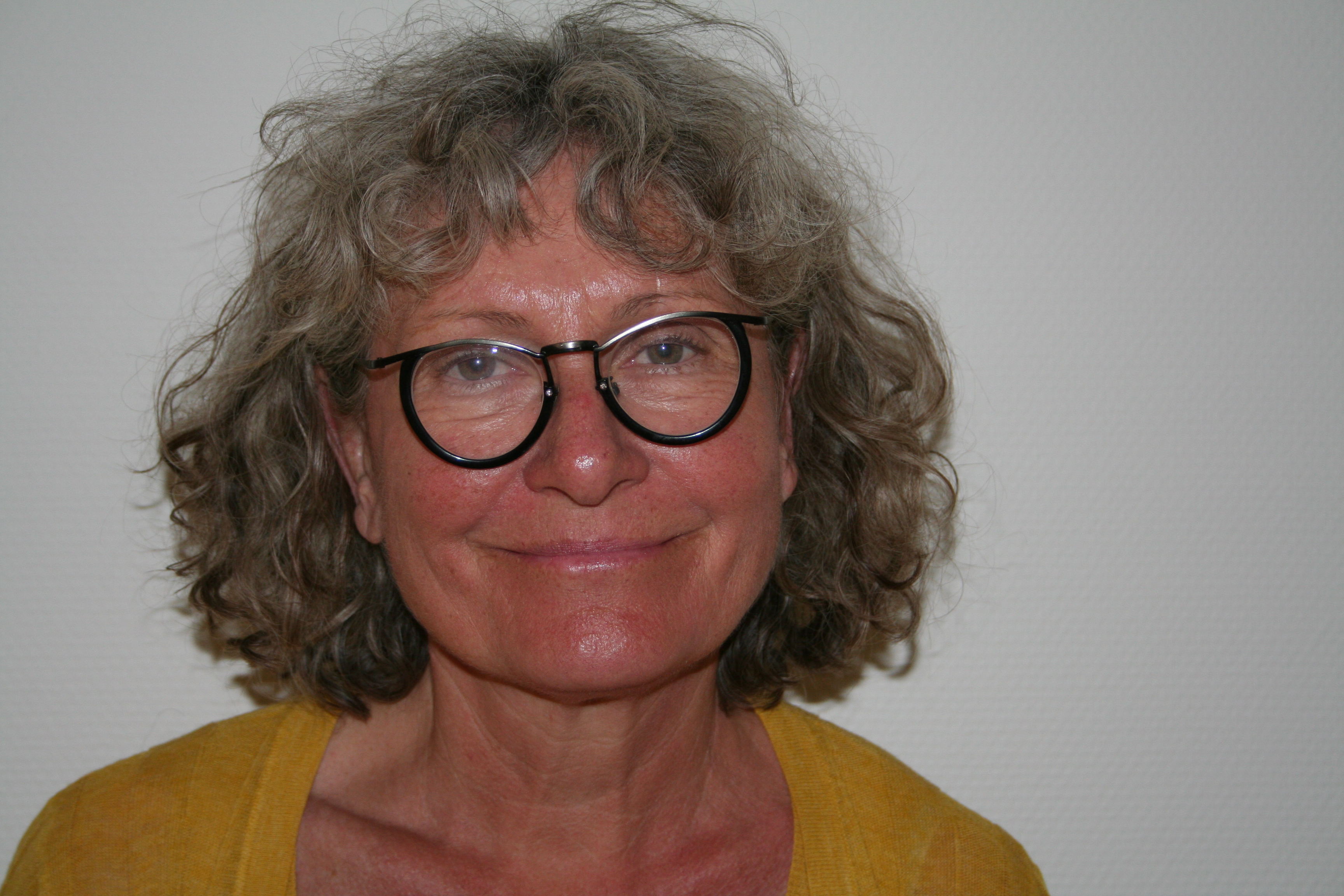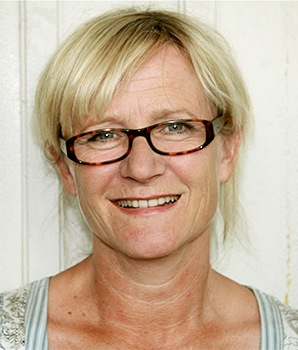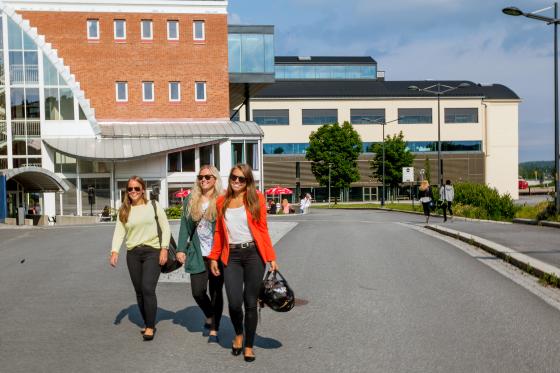Network gives female researchers a higher profile
The network at Østfold University College is bearing fruit. A book and a mentoring scheme for women were recently launched. The network was also the driving force behind the professorship grant established for both genders.
“The KvinnForsk network helps to ensure we are seen, and it gives visible results,” says Eva Skærbæk, head of the women’s network in the Faculty of Health and Social
Studies at Østfold University College.
The KvinnForsk network was established in 2009 with start-up funding from the Committee for Gender Balance in Research (the KIF Committee). Membership in the KvinnForsk network is open to female researchers in the university college’s Faculty of Health and Social Studies who are on a career path towards a full professorship. When it began the network had 11-12 female researchers – and today there are 22 active members.
Now the network has launched two large projects: a book and a mentoring scheme.
New mentoring scheme
So far the mentoring scheme is a trial project that will last for one year. The scheme is open to network members, and today it consists of eight mentees and four mentors. The mentors’ task is to advise the researchers about good career choices that will help them to obtain a professor-level position, explains Skærbæk, who has headed the women’s network since its inception four years ago and who serves as one of the mentors.
“After completing their doctoral degrees, female researchers in the faculty can now get help and support to focus on their research and careers,” she explains.
The scheme is modelled on the mentoring scheme at the Norwegian University of Science and Technology in Trondheim, but it is on a smaller scale since the KvinnForsk network’s resources are more limited.
Have ethics in common
Eight of the KvinnForsk researchers have also published the academic book Verdi og verdighet: Etikk i praksis (“Value and dignity: Ethics in practice”), which was funded with NOK 75,000 from Småforsk, a public funding scheme for small research projects.
“One purpose of the book is to reach out to the research community – so that our research can be understood and used out there.”
Both of the book’s editors, Eva Skærbæk and Lillian Lillemoen, have ethics as a field of expertise.
“When we planned to write a book together, we had to find out what the women in the KvinnForsk network have in common, and it turned out that almost all of the researchers in our discipline are very concerned with ethics. They are concerned with how we can make our society better – a society where we are better able to safeguard the value and dignity of the most people possible for as long as possible,” explains Skærbæk, who has a doctoral degree in theology.
A refuge for women’s aspirations
The head of the KvinnForsk network emphasizes that the network’s monthly meetings at the university college, where they come together to discuss their research and careers, are extremely important for the members.

“The strength of the KvinnForsk network is that it’s a place where women can talk about their research.”
Skærbæk thinks that the university college culture tends to promote teaching as the most important activity – and it is teaching that colleagues are primarily supposed to discuss with each other. This is why it is positive to have a place that focuses on the members’ research.
“And not least, it is a refuge where women can feel free to talk about their career plans – a safe place where it is acceptable to say that they aspire to be a full professor.”
Support from the leadership
After the KIF Committee provided start-up funding, Østfold University College has followed up and supported the network’s activities with the funding needed to continue.
“The support we have got from the leadership at the university college – especially the financial support – has been invaluable. Both the former and the current dean of the faculty understands the importance of having a network like this,” Skærbæk emphasizes.
The recently appointed dean of the Faculty of Health and Social Studies, Mona Jerndahl Fineide, has been a member of the KvinnForsk network since it began in 2009, and she wants to continue the good climate of cooperation between the network and the leadership.
Sparring partner and catalyst
Fineide thinks that the network provides good support not only for the individual employee who wants an academic career, but also for the leadership. The KvinnForsk network is a sparring partner that ensures a gender perspective is incorporated into the organization and leadership of the university college and that serves as a catalyst for implementing concrete measures such as the new mentoring project.
One result from the women’s network is that Østfold University College recently established a professorship grant for researchers who are on a career path towards qualifying to become a full professor. The grant, which was first proposed by the network, may be sought by both women and men, and there has been a good balance between male and female grant recipients.
“As of today, four or five women in the network have received a professorship grant,” says Skærbæk.
The dean believes that the new professorship grants can help to strengthen gender equality efforts at Østfold University College:
“These future professors will give a boost to the women who follow in their footsteps so that they grow in number. With a long academic career behind them, they will provide support, guidance, motivation and inspiration to their colleagues,” says Fineide.
Watchdog
The health and social care sciences have traditionally been dominated by women. Despite this, there have often been more men than women at the top of the academic hierarchy in these fields. According to Skærbæk, this is rather typical for female-dominated fields.
“Yes, because we do very much want to have men in our fields, and maybe this is why it’s been easy to give them certain advantages,” she says. “As head of the KvinnForsk network, I speak up when I see unfairness like this. I have had to point it out from time to time,” says Skærbæk.

Dean Mona Jerndahl Fineide does not find it problematic that the KvinnForsk network monitors the situation to ensure that women are not overlooked for promotions or appointments at the university college. Quite the contrary:
“The KvinnForsk network is supposed to act as a watchdog, and those of us in leadership positions must accept that,” she states.
Should be unnecessary
Fineide thinks that ideally there would not be a need for such a network.
“Female academics should actually have equally good conditions and just as much support for their career paths as their male colleagues. But when almost 80 percent of the professors here in the Nordic region are men, we need a concerted effort from many different quarters to improve the gender balance. This is why gender equality efforts are both important and necessary,” she emphasizes.
Wants to inspire others
“What do you think is the most important task of the KvinnForsk network and similar women’s networks?”
“One of the foremost tasks of the women’s network is to help women set aside time for research. We think everything in Norway is so great when it comes to gender equality, but we see that progress has stalled in spite of the many measures to promote gender equality. We need to come further! In a European context we are not so remarkable,” states Skærbæk.
“In my experience, the KvinnForsk network has helped us to be seen! So I really hope that our work can be an inspiration to others as well,” she concludes.
Translated by Connie Stultz.
The proportion of women in associate professor and senior lecturer positions in the Faculty of Health and Social Studies at Østfold University College was about 48 percent in 2008, and this figure has increased steadily over time to almost 61 percent in 2012.
For the entire university college, the corresponding figures were about 31 percent in 2008 and 44 percent in 2012. The proportion of women in teaching and research in these years has been relatively stable with roughly 68 percent in 2008 and 67 percent in 2012.
In 2009 the KIF Committee announced NOK 600,000 in funding to establish or strengthen networks for female researchers in male-dominated fields. Grants were awarded to 15 different networks, and the KvinnForsk network received NOK 30,000 of the total amount available.
